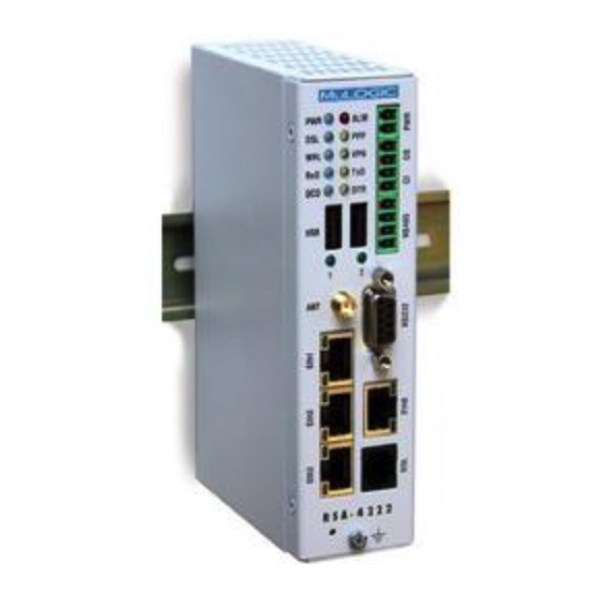
Industrial Cellular Routers

Industrial modems receive information from an Internet Service Provider (ISP) through phone lines (DSL), coaxial cables or optical fiber and converts it into a digital signal. This digital signal can now be utilized by an industrial router to get the information to connected devices through Ethernet cables or Wi-Fi. The speed and reliability of the information transmission can vary greatly depending on the type and design of the modem and router.
Cellular routers allow multiple devices in a Wi-Fi network to access the Internet by connecting to cellular towers, creating an Internet gateway on the move, or in areas without accessible or reliable Wi-Fi. Traditional routers obtain Internet access through cable, telephone or fiber optic lines. Industrial cellular routers are designed to be compatible with 2G, 3G, and 4G LTE technology to provide flexibility and speed to any network and are able to operate within a wide temperature range. They have connections for serial, Ethernet and digital I/O and can be mounted to a panel or DIN rail.
Products
Ethernet hubs, switches and routers connect computers to networks, devices and other computers.
Ethernet hubs are the least intelligent of the three devices. They simply take any message that is received and transmits it to every other device connected to that hub. For example, if CPU 1 on a network wants to send a message to CPU 5, it will send that message through the hub.The hub will then take that message and send it out to every connected device on that hub regardless of the intended target. When CPU 5 receives that message and wants to respond, it will send its response through the hub which sends it to every connected device. Ethernet hubs do not manage any data that is sent and tend to bog down networks. They also do not offer much security for the network. For these reasons, Ethernet hubs are are being replaced with network switches.
Switches transmit data from one device to another on the same network. Unlike a hub, switches use a switch table to learn where data came from and where to send it. Switch tables store Mac addresses and device ports. By storing this data, a switch can operate more efficiently than a hub, greatly reducing the traffic within the network.
Routers transfer data between devices while learning the location of those devices within the network. They are also a junction between two or more networks. An example of this would be a home router where the home network is connected to the Internet. Another example would be when the router connects two or more networks with different business functions. In addition to connecting two or more networks, a router offers important security features that help protect the network.

